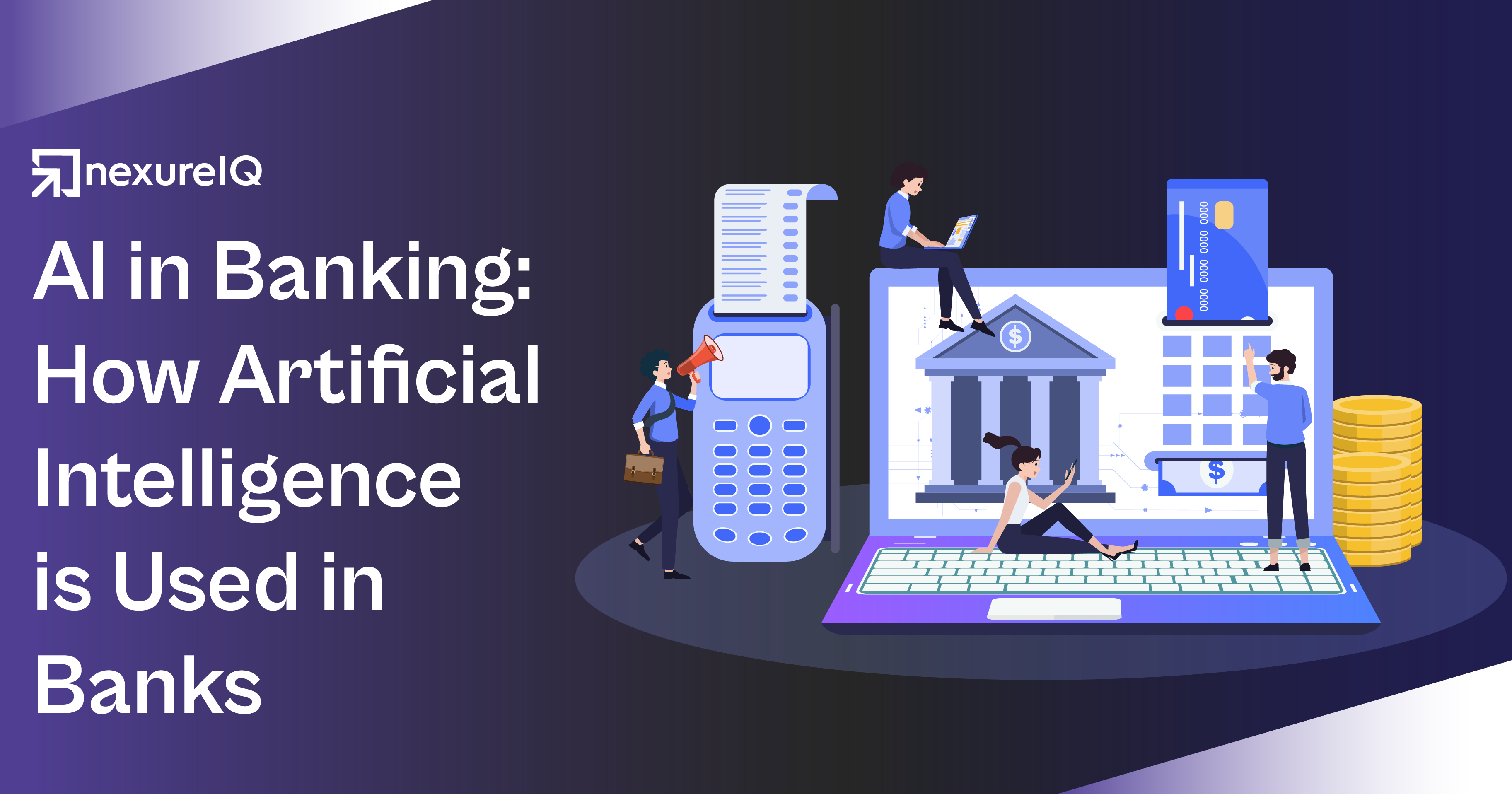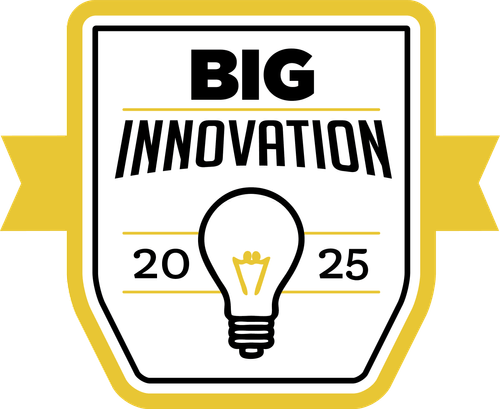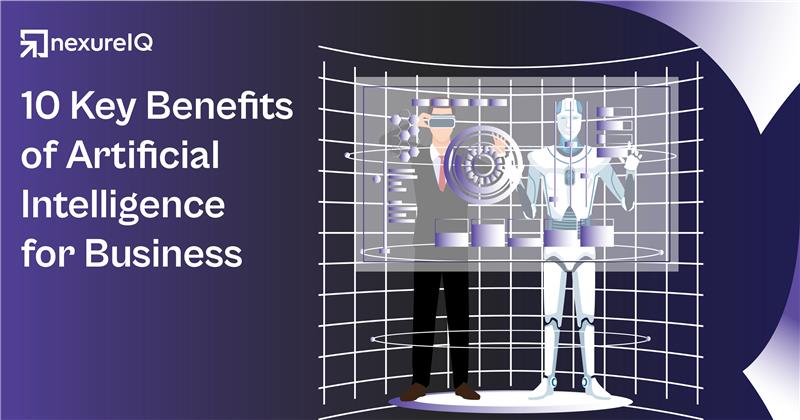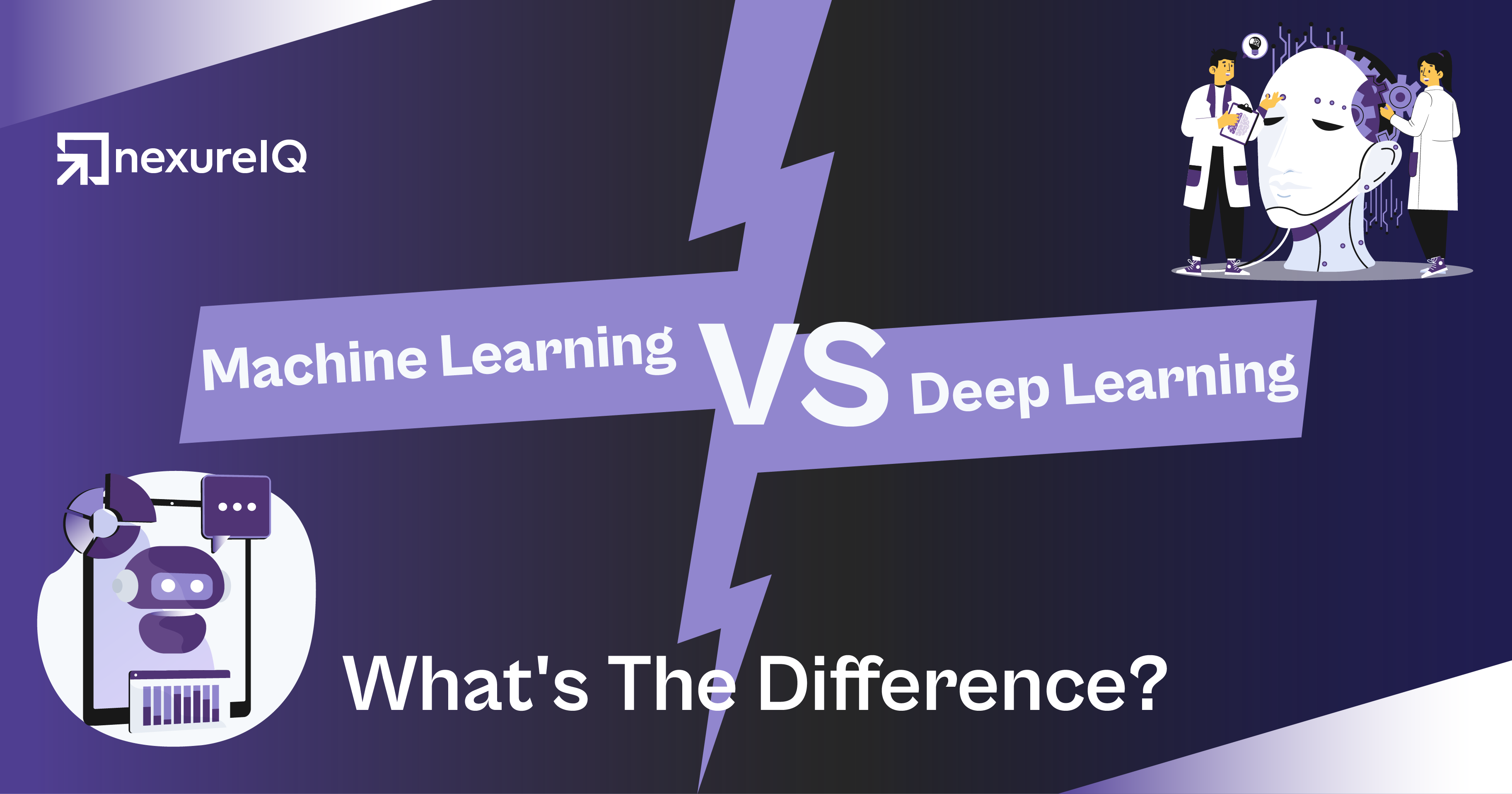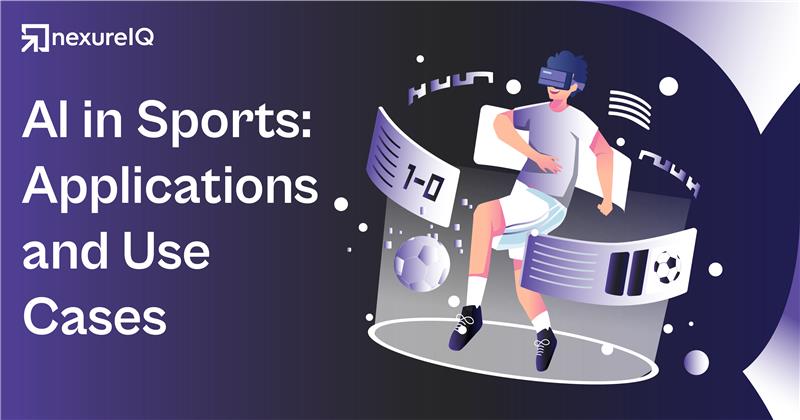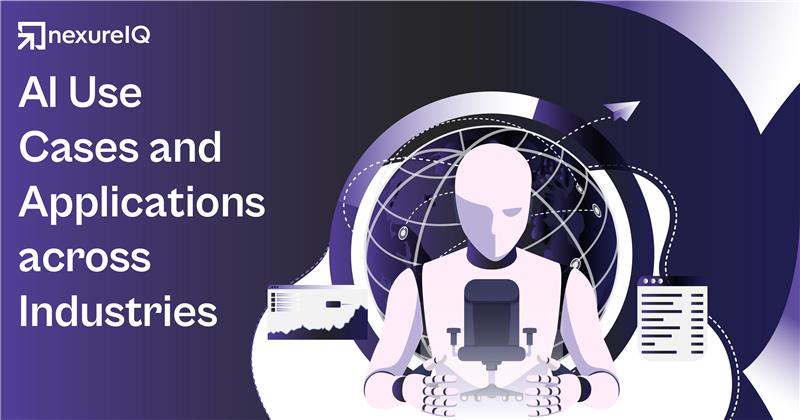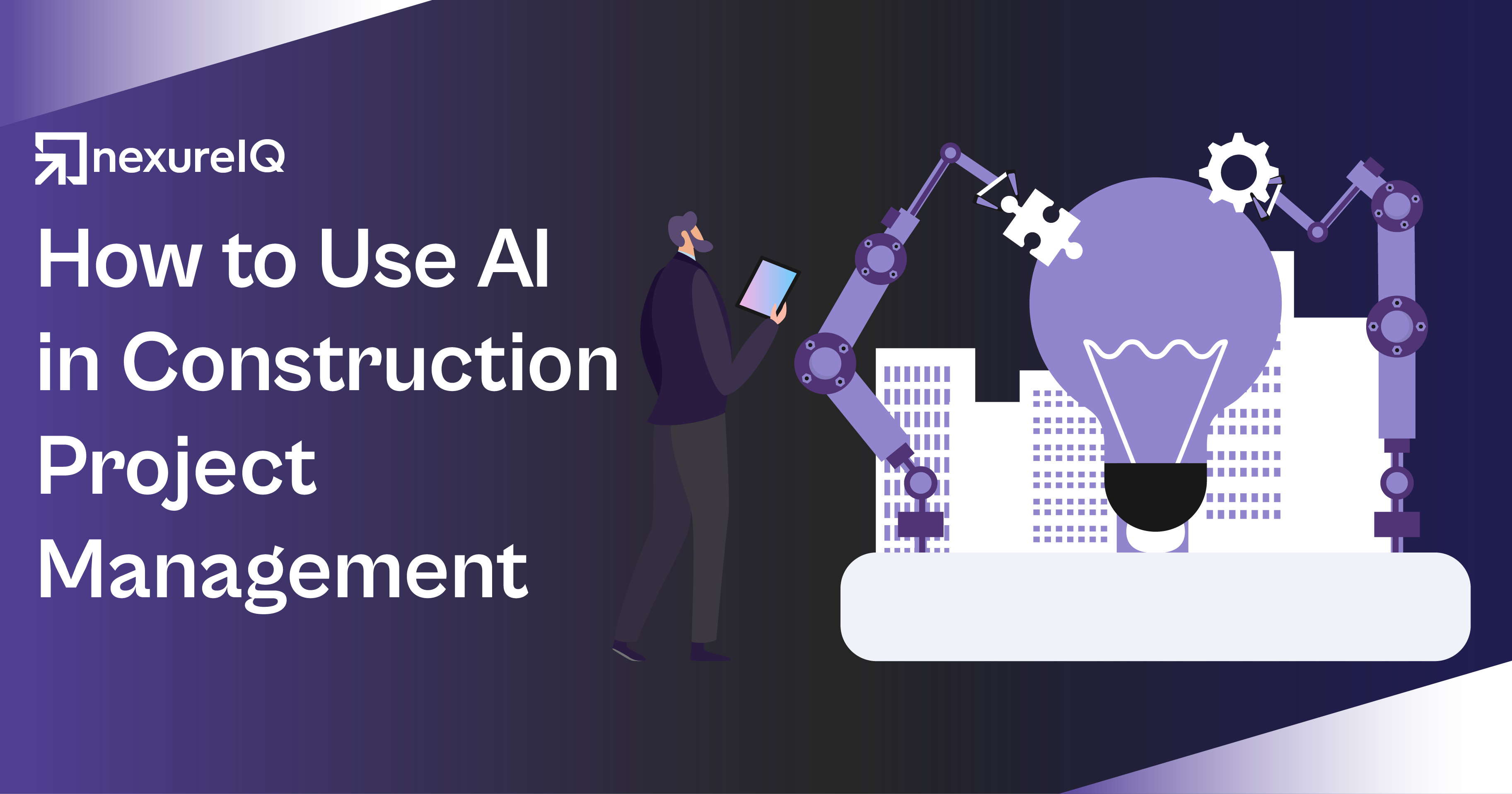The use of artificial intelligence in banking is revolutionizing the financial sector, offering advanced automation, improved decision-making, and enhanced security. Digital transformation continues to increase at rapid speeds which motivates banks around the world to integrate AI/ML technology with banking applications to enhance business operation efficiency and support security measures and customer service improvements. A PwC research study forecasts the global economy will receive $15.7 trillion in value from AI technologies by 2030 and financial services hold one of the top positions for this growth. The industry transition happens because banks must achieve higher operational efficiency and deliver personalized services alongside fortified security capabilities.
Financial institutions are leveraging artificial intelligence in banking across various functions, including AI based fraud detection in banking, risk management, AI in lending, regulatory compliance, and customer support. AI-driven chatbots together with virtual assistants operate all day to supply uninterrupted financial institution assistance which establishes uninterrupted customer engagement. The Bank of America AI chatbot Erica has processed more than 10 million user inquiries by providing financial advice along with transaction support. AI-optimized fraud detection systems examine extensive transaction data through real-time analysis to both detect and stop unauthorized activities which prevent financial loss. Through its Decision Intelligence AI system Mastercard examines 1.9 billion daily transactions to lower the number of fraudulent activities drastically.
One of the most impactful AI use cases in banking is in lending and credit risk assessment. The standard credit scoring systems operate below their maximum capability to understand borrowers’ full financial situation. With AI in lending, machine learning algorithms assess alternative data points, such as spending habits, social media activity, and transaction history, to offer more accurate and inclusive credit assessments. Upstart along with other companies uses AI solutions for banks to simplify rapid loan decisions through an AI system which achieves 75% better success than standard assessment models.
How AI Used in Banking?
The use of artificial intelligence in banking is transforming financial services by enhancing automation, improving security, and delivering personalized customer experiences. Banks are utilizing AI-based fraud detection in banking, risk assessment, loan approvals, and regulatory compliance. Financial institutions use AI-based fraud detection in banking to identify suspect transactions at any time which shields banks from unauthorized conduct. Additionally, AI in digital banking enables banks to offer 24/7 customer support through chatbots like Erica from Bank of America, which assists customers with account inquiries and financial guidance.
AI in Banking and Finance
Artificial Intelligence (AI) brings revolutionary changes to banking and finance by optimizing operations, improving security levels and customer satisfaction. The following section carries out the strategic applications of AI in the banking industry and finance.
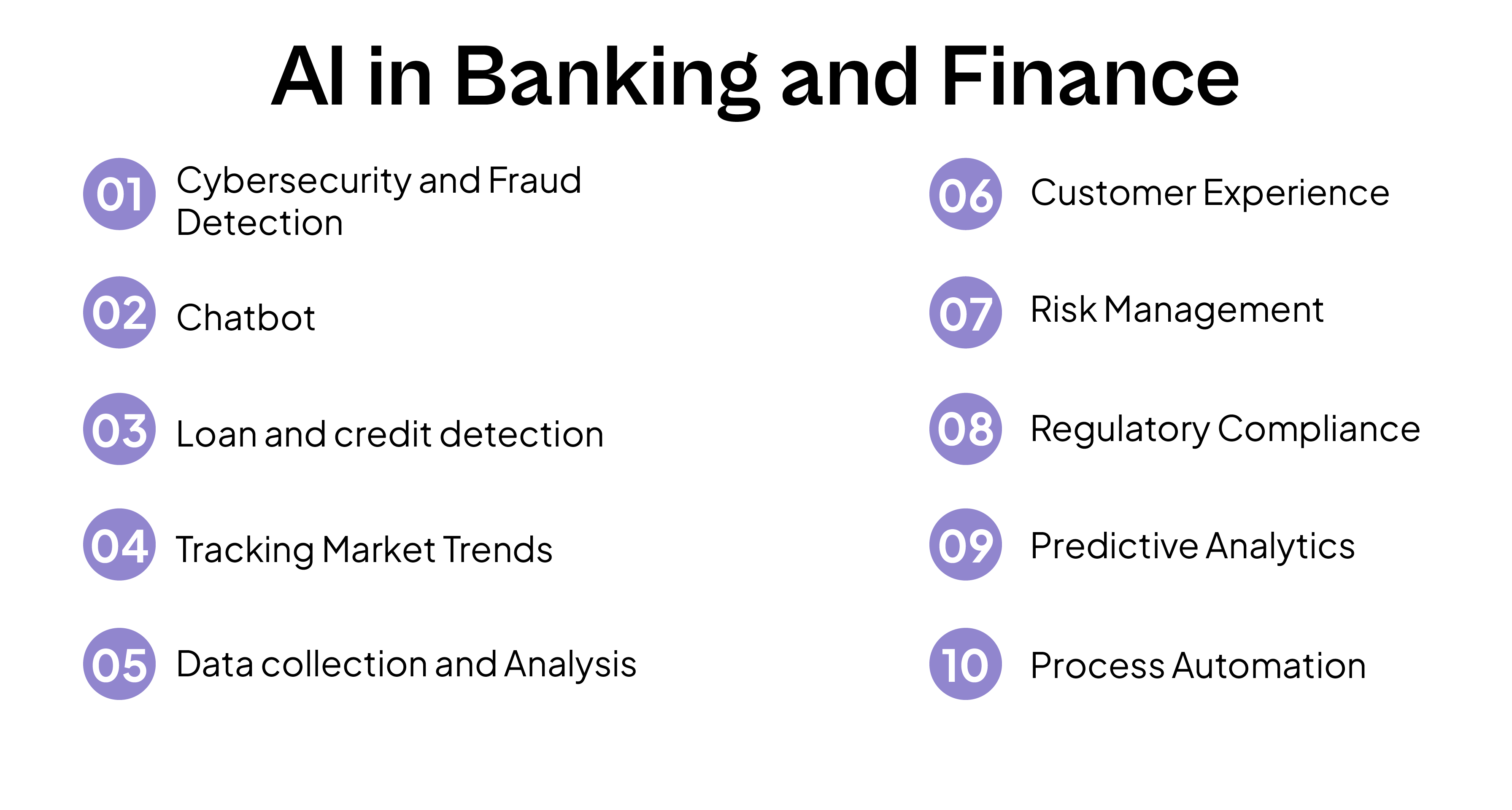
1. Cybersecurity and Fraud Detection
Artificial intelligence in banks operates as a primary force for banking security while making the detection of fraud activities much easier. AI software examines big transactional databases to detect strange behavior patterns. It then reports immediately to security teams so that they can investigate suspicious activities. AI in the banking industry tracks behavioral data for any changes from previous and normal patterns which helps fight criminal activities in banking operations.
2. Chatbot
AI chatbot development companies bring significant changes to customer service support within the banking industry. These virtual assistants deliver continuous 24/7 assistance while managing all types of questions. Chatbots operating within banking sectors handle continuous operational availability through learning from customers to enhance their ability to process user needs better.
3. Loan and credit detection
Technology based analysis systems improve the credit approval process by providing detailed examinations of financial data concerning loan applicants. Banks integrate AI/ML with banking services to modify traditional banking services. Through machine learning technology Upstart operates as an online lender which enables them to determine better prospects for loan and credit card approvals.
4. Tracking Market Trends
AI in digital banking to track market patterns with huge data analysis which allows them to predict future developments. Artificial Intelligence uses information from news, broker reports and social media feeds to measure market sentiment about companies to support investment decisions. With current development, the future of artificial intelligence in banking is considered to be a huge hit.
5. Data collection and Analysis
AI in digital banking efficiently speeds up the data collection process to deliver useful and strategic information for decision-making processes. The use of artificial intelligence in banking enables organised operations, bookkeeping activities along with stock investment and property management at all times.
6. Customer Experience
Enhancing customer experience is a significant application of AI in banking. Customers can get instant support from AI chatbots and virtual assistants and customise recommendations allow them to make better financial choices. Artificial intelligence in banks enables training to establish automatic payments and make on time alerts which allows clients to perform their account duties by themselves.
7. Risk Management
Risk management processes receive assistance from AI which analyze data to forecast possible risks to let organizations take preventive measures. Artificial intelligence assists managers to consider data driven insights, manage risk and perform trading functions which allows them to create decisions that work best with their clients’ financial goals.
8. Regulatory Compliance
The banking sector needs strict rules of all regulatory standards for its continued operation. AI banking solutions track financial deals and detect any actions violating compliance requirements that aid anti-money laundering actions. Their goal is to identify any AI based fraud detection in its initial stage and make measures to prevent it. The deep learning technology in LaundroGraph provides anti-money laundering assistance through its AI software platform.
9. Predictive Analytics
Predictive analytics features of AI technology provide banking institutions with tools to estimate market developments and customer conduct patterns. AI in digital banking applications analyze customer data to discover future product demands and allows banks to deliver customized services. This method results in increased customer satisfaction while maintaining customer loyalty.
10. Process Automation
AI in corporate banking controls workflows which minimizes operational work while maximizing operational speed. The training of AI models allows businesses to establish automatic payment processes and send on spot payment alerts and enable banks to change information and eliminate human maintenance requirements.
The integration of AI in banking and finance is complex, offering solutions that improve security, improve customer service, and streamline operations. AI technology shows signs of continuous progress which will expand its industry applications in financial operations to transform the whole world’s systems.
AI in banking examples
- JPMorgan Chase made LLM Suite available to 200,000 employees through its generative AI assistant which focuses on bringing AI capabilities into daily operational routines for increased efficiency. AI tools provide staff with time saving technologies which include email and document summarizing while generating productive work competition between teams.
- Commonwealth Bank of Australia dedicates significant financial resources to AI development for operational improvement across different functional areas. With the use of artificial intelligence powered systems, call center hold periods have decreased by 40% and the amount of money lost to fraud has been reduced in half. They use 50 AI use cases in banking to get profitable along with spending redirect methods.
- AI deployment Wells Fargo continues its experimental phase across different sections while focusing on corporate financial analysis and call center operations to improve operational effectiveness. AI in digital banking will improve the work efficiency of staff by handling reading and evaluation for Wall Street analyst reports.
Challenges in Adopting AI in Digital Banking
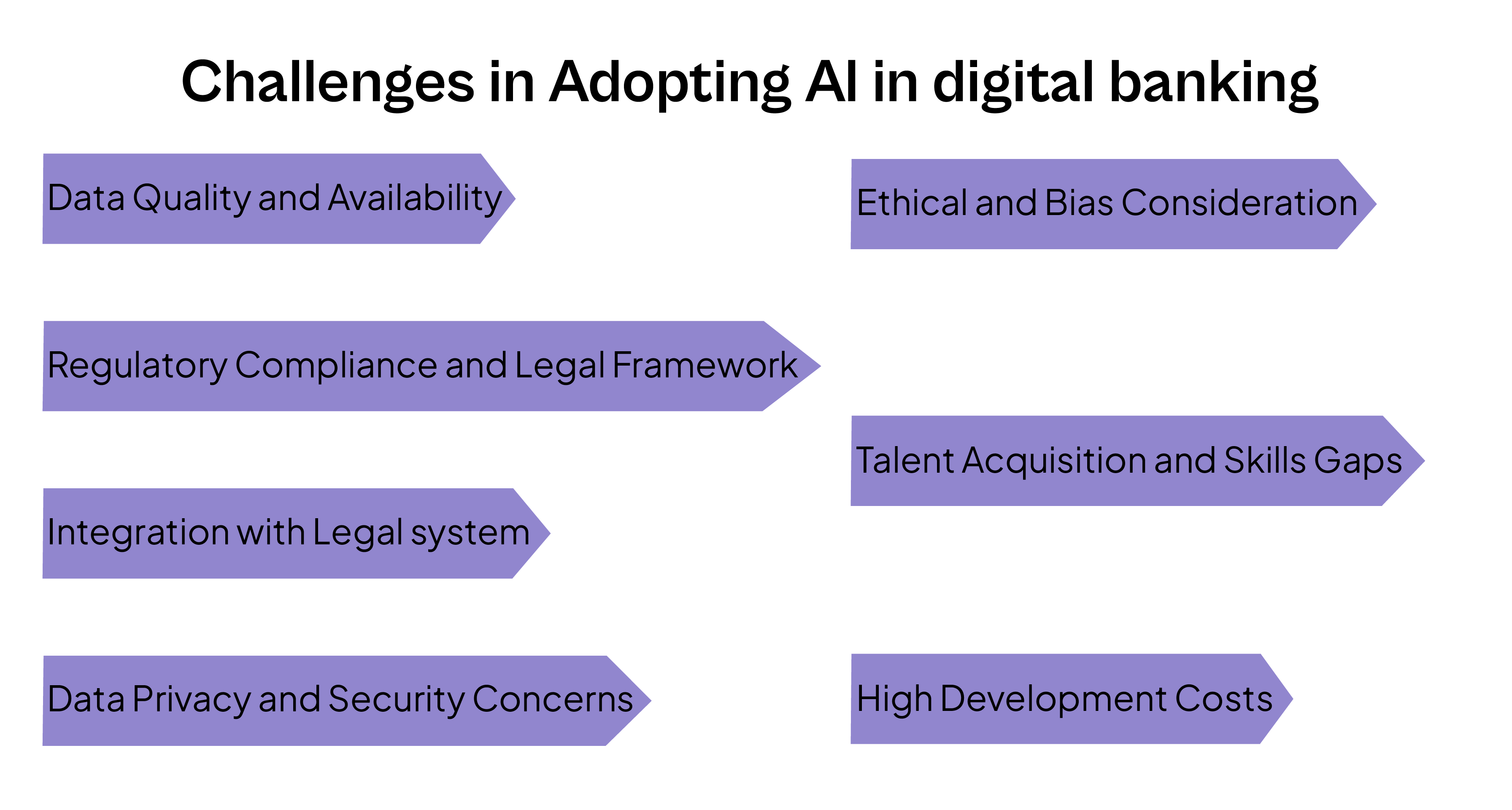
Banking industry has achieved many benefits by implementing Artificial Intelligence systems in their operations but need to solve multiple implementation challenges to achieve success.
1. Data Quality and Availability
AI in digital banking needs large collections of quality data to execute their desired operation. The banking industry works with such data components which contain personal information and financial data. The critical aspects for banks include keeping the authenticity of their data safe and with its fullness and freedom from prejudice. The application of AI algorithms may produce wrong assessments when bank customer data includes errors or outdated information. It then alerts risks to bank and customer service dissatisfaction. Banks need to dedicate funds to implement strong data management methods that promote accurate data retention and smooth system data connection.
2. Regulatory Compliance and Legal Framework
The banking sector works under strong regulatory challenges which get intense when organizations start using AI technology. AI systems intended for loan approval need to have fair lending regulations because they need to make unbiased decisions. Some AI algorithms possess opacity that prevents regulatory bodies from obtaining transparency essential for their oversight needs. Banks need thorough internal policies and governance frameworks which abide by general risk management strategies to tackle these challenges. Banks need to maintain ongoing correspondence with regulatory bodies to get updated information about changing regulations.
3. Integration with Legal system:
Legal bank systems which existed before the AI era lack the ability to support complex AI solutions for modern banking applications. Upgrading outdated infrastructures with AI functions leads to complex implementation challenges and high expenses. The implementation of an AI-driven fraud detection system by a bank could be prevented by their transaction processing system. It lacks real-time data analysis capabilities that AI requires. Discarding outdated legacy systems through investment requires substantial funds before implementing an environment for AI technologies can happen.
4. Data Privacy and Security Concerns
When AI processes sensitive financial data they create substantial privacy and security problems for stakeholders. The absence of proper security protocols leads to data breaches that threaten client information and reduce customer faith in institutions. When a banking service AI system experiences a security breach, it may jeopardize the personal banking details of customers. Effective data protection and compliance necessitate from banks the implementation of strong security measures through continuous monitoring with advanced encryption techniques and threat prevention systems.
5. Ethical and Bias Consideration
The training data used by AI systems has potential to create new or worsen existing biases in automation which leads to unfavorable effects. AI models performing credit assessments that receive training from biased historical data cannot prevent them from restricting specific demographic groups. AI discrimination can be managed with proper selection of datasets and algorithm development alongside continuous monitoring mechanisms to maintain fairness and accounting in automated decisions. Banks should create ethical principles along with routine AI system audits for detecting and reducing discriminatory practices.
6. Talent Acquisition and Skills Gaps
The successful implementation of AI in banking requires specialized skills in data science, machine learning, and AI system management. The workforce is insufficient regarding professionals holding these competencies. Organizations find it difficult to hire and maintain personnel who possess the capabilities for creating, developing , deploying and sustaining AI applications. Institutions should design training programs for existing staff development and should partner with educational organizations to nurture professionals with required skills.
7. High Development Costs
The process of developing along with deploying AI solutions entails substantial financial costs. Significant financial expenses stem from purchasing technology along with enhancing infrastructure capabilities along with teaching new skills to employees. A bank intending to deploy an AI-based customer service chatbot must conduct software programming alongside system combination work and continuous support operations. Banks should study both open-source AI platforms with scalable models that let them increase their budget step-by-step.
AI has immense power to transform banking yet accepting this technology goes hand in hand with solving its implementation challenges. The deployment of sound data management systems combined with regulatory compliance protocols and modernized legacy systems and data privacy protections along with ethical AI promotion and skill gap closures supports banks to achieve the complete benefits of AI integration through effective management of development costs.
Strategies for becoming leader of AI in digital banking
Opting for an AI-driven bank requires a thorough strategy which brings advanced technology into each operational aspect. The new operational system brings forth increased efficiency and superior customer experience with improved competitive position. The following section provides specific guidance which banks need for their journey along with practical illustrations throughout.
1. Develop a comprehensive AI strategy
Your bank must start by creating an AI strategy that matches its organizational goals. You should pinpoint business operations that AI technology will enhance such as risk management systems as well as fraud detection and customer service platforms. LLM Suite represents the generative AI assistant which JPMorgan Chase created to boost efficiency across its different departments.
2. Ensure Data Availability and Quality
All AI systems need to process data which remains pure with straightforward access to organized structures. Modernization of legacy banking systems needs top priority to enable AI model function. Wells Fargo tests different AI applications throughout their organization while focusing on improving activities that include analyst report evaluation and customer support functions.
3. Create AI environment
The adoption of artificial intelligence depends on banks to train personnel properly while enhancing departmental teamwork and developing innovative solutions. Morgan Stanley creates purpose-built AI tools that merge smoothly with present workflow structures to improve both workflow speed and user satisfaction.
4. Invest in Talent and Training
The organization needs to recruit and maintain professionals who bring expertise in data science, machine learning and AI system management. The recruitment of an AI expert from Amazon Web Services by Lloyds Banking Group demonstrates how critical leadership plays in developing artificial intelligence programs.
5. Upgrade Technological infrastructure
The company should upgrade its IT platform to support the execution of AI-based solutions. Commonwealth Bank reached impactful results by working with Microsoft to carry out AI applications for both fraud prevention and improved customer service excellence.
6. Identify and Prioritise AI use cases
Organizations should direct their AI investments to locations which show the biggest potential for change. The implementation of AI-powered chatbots at Ally Financial leads to 24/7 customer assistance because of their AI-based support system.
7. Develop ethical guidelines
The organization must create rules to monitor ethical behavior and regulatory requirements in AI system operations. The implementation of ethical guidelines requires AI algorithms to be bias-free while maintaining complete transparency during decision-making operations. Participating in a sustained dialogue with regulatory organizations remains crucial since this approach safeguards your firm from evolving compliance requirements.
8. Monitor and Regulate AI performance
Regular performance checks on AI systems should verify target achievements and allow for modifying the needed functions. The framework requires setting performance indicators (KPIs) and it needs ongoing output analysis to achieve effective and reliable AI performance.
Banks can transition into AI-based financial establishments by deploying these strategies to leverage technology for operational enhancement and customer experience improvement with better industry market positioning.
Benefits of AI in Banking
The banking industry experiences a revolution through Artificial Intelligence which delivers improved operational attitudes together with better customer service performance and superior protection mechanisms. The following section illustrates the major advantages that occur when banks integrate AI technology accompanied by concrete industry illustrations.
1. Better customer service
AI-based chatbots together with virtual assistants work continuously to offer round-the-clock customer service functions that handle questions and solve problems speedily. The Wells Fargo organization conducts AI testing of various use cases throughout different operational areas to simplify report evaluation processing and customer service activities.
2. Improved Fraud Detection and security
AI systems examine enormous amounts of transaction information to detect unusual patterns which reveal fraudulent transactions. AI technologies at Commonwealth Bank of Australia resulted in reducing their fraud-related losses by half which proves the effectiveness of AI systems in boosting security.
3. Operational efficiency and cost reduction
AI systems free bank staff from monotonous work which enables them to tackle sophisticated challenges for higher workplace efficiency. Operating AI systems at Commonwealth Bank resulted in a 40% decrease of wait times for callers at their call centers proving substantial operational enhancements.
4. Customized Financial services
With AI terminology banks create personalized financial products through examining customer information to identify personal needs. The algorithm systems at Deutsche Bank help finance advisors locate suitable investment options that match customer preferences making service delivery more personalized.
5. Risk Management and decision making
Investors gain access to extensive risk evaluation information through AI because it analyzes historical patterns and market trends in data. Better decision-making coupled with superior risk oversight become possible for customers.
6. Regulatory Compliance
AI technology helps financial institutions track transactions as well as activities to maintain regulatory compliance thus decreasing the chances of non-compliance. The automation of compliance procedures helps banks achieve higher operational efficiency in their regulatory obligation management.
The integration of AI in banking offers numerous advantages, including enhanced customer service and streamlined compliance. AI technology keeps developing which guarantees its sector-changing impact on banking will increase in the future
AI-Powered Investment and Wealth Management
The integration of artificial intelligence in banking is not limited to customer service and fraud detection—it is also transforming investment and wealth management. Banks and financial institutions are leveraging AI banking solutions to provide data-driven investment insights, optimize portfolio management, and enhance financial advisory services. Custom investment strategies result from AI-powered robo-advisors through their analysis of market data with historical patterns and customer risk assessment profiles. Through AI algorithms JPMorgan Chase identifies unusual market patterns to discover investment prospects which allow clients to make better decisions. With AI in the banking industry, financial advisors can automate routine tasks and focus on complex investment strategies, increasing efficiency and profitability. The application of AI in banking enables banks to offer real-time portfolio optimization, risk assessment, and financial planning, ensuring better wealth management services for their customers. AI continues to develop at an accelerating pace thereby extending its application scope in corporate and retail banking investments. AI in corporate banking enhances planning efficiency and enhances precision and speed.
How can we help you with AI in corporate banking?
Integration of AI in banking is a process that requires expert guidance, advanced technological solutions, and a strategic approach. Whether you are looking to implement AI-based fraud detection in banking, enhance customer experience with AI-driven chatbots, or streamline operations with AI banking solutions, we provide comprehensive AI development services tailored to your needs.
1. Custom AI banking solutions
We specialize in building AI banking solutions customized for financial institutions. From AI in corporate banking to AI in digital banking, help banks integrate intelligent systems for risk assessment, credit scoring, and regulatory compliance. A large number of financial institutions implement AI-based fraud detection software to block unauthorized transactions instantly. AI models monitor transaction behaviors to detect fraudulent patterns which leads to prevention of financial loss.
2. AI chatbot Development for banking
Our AI chatbot development company develops strong AI chatbots which offer financial guidance to clients and execute administrative work and answer customer inquiries. 24/7 customer support provided by these bots allows banks to reduce operational costs together with superior customer satisfaction. Banking institutions including HSBC and Bank of America incorporated the AI chatbots Erica to provide help with account oversight to their customers. Our team builds comparable AI systems which match the requirements of your banking infrastructure.
3. AI in Lending and credit assessment
We assist banks in integrating AI in lending by developing machine learning models that analyze customer creditworthiness, enabling data-driven loan approvals. The system operates with a lower percentage of biases that leads to better financial inclusion. Companies like Upstart leverage AI in lending to assess credit risk based on non-traditional data sources, allowing more borrowers to access loans. The AI solution available at our company allows your bank to implement identical systems.
4. Predictive Analytics for market insights
We assist banks to analyze financial trends for market movement predictions and make better investment choices through predictive analytics. AI systems use enormous historical datasets combined with current data to generate usable information. JPMorgan Chase as an AI-driven financial institution uses machine learning to discover market trends that guide its investment strategy improvement through the detection of these patterns.
5. AI process automation
Our financial system solutions enable bank employees to automate document verification tasks alongside other processes such as transaction processing and compliance monitoring thus decreasing operational costs while enhancing operational efficiency. AI in the banking industry ensures faster processing times and fewer human errors. Many banks now use AI in digital banking to automate KYC (Know Your Customer) processes, reducing verification times from days to minutes.
6. Regulatory Compliance and risk Management
Our teams create AI models to perform regulatory compliance functions which provide banks with a dual capability of monitoring money laundering risks and suspicious activity together with standard compliance verification. Leading banks achieve anti-money laundering (AML) as well as fraud detection compliance through their implementation of AI-based regulatory technology (RegTech) solutions.
Why choose us?
Our status as an AI development company allows us to provide complete end-to-end service for building AI/ML integrated solutions that work seamlessly within banking systems. Our expertise in AI use cases in banking allows us to deliver cutting-edge solutions that drive innovation and efficiency.
By partnering with us, you can leverage artificial intelligence for banking to optimize operations, enhance customer engagement, and stay ahead in the competitive financial landscape.
The banking industry experiences a revolution through AI technology which secures financial operations better while giving improved customer experience along with enhanced operational efficiencies. From AI in lending to AI-based fraud detection in banking, its applications are vast. The financial sector needs to solve security and data compliance problems which currently exist. Financial institutions that implement artificial intelligence strategically will achieve operational efficiency while reducing risks to provide exceptional service experiences to customers. As the future of artificial intelligence in banking unfolds, financial institutions that embrace AI will stay ahead in the competitive market.
